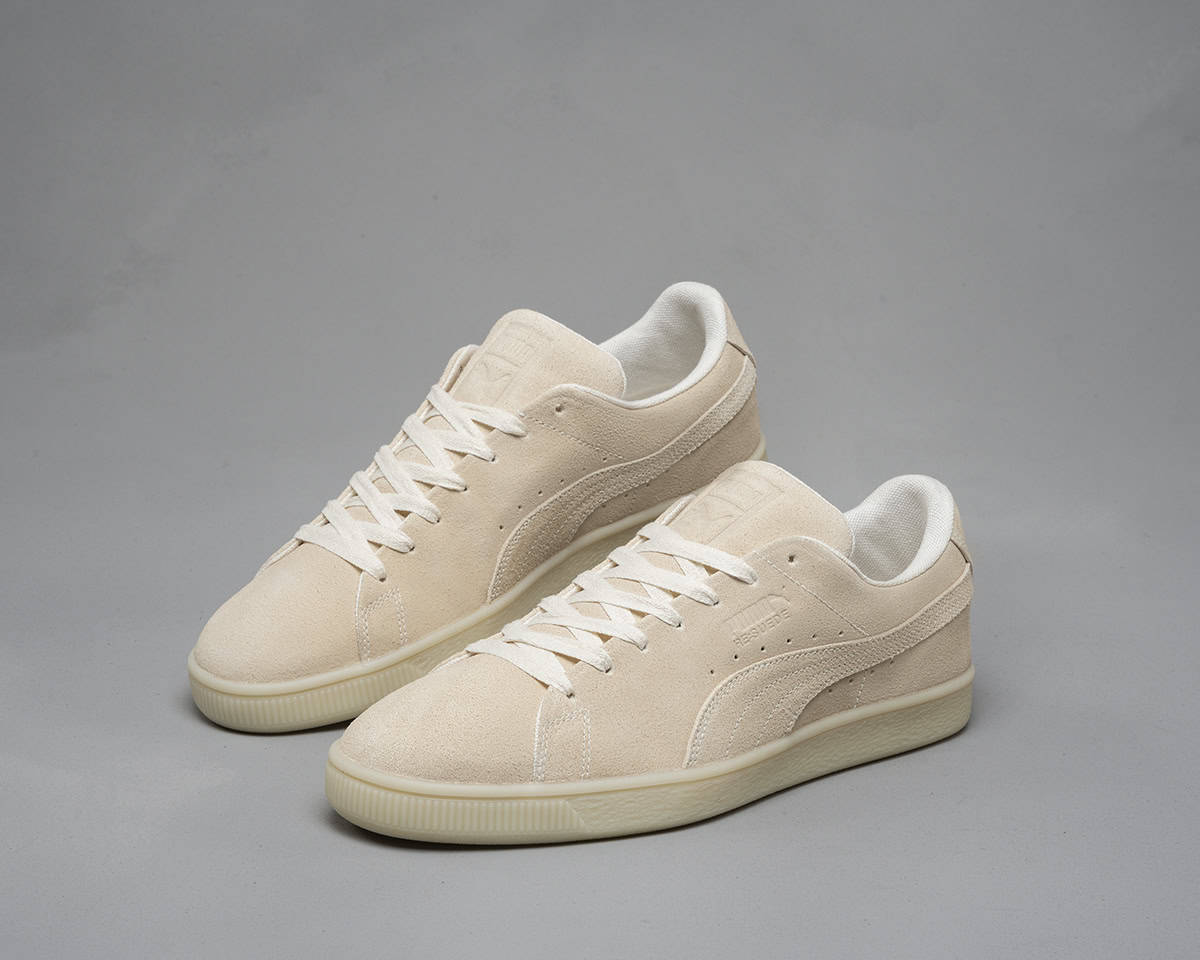PUMA MAKES RE:SUEDE 2.0 SNEAKER AVAILABLE AFTER TWO-YEAR COMPOSTING EXPERIMENT

Sports company Puma has made a commercial version of its experimental Re:Suede sneaker, the Re:Suede 2.0, available for sale. Puma showed it was able to successfully turn the Re:Suede into compost under tailor-made industrial conditions during a two-year pilot project.
As part of the experiment, which was successfully concluded in late 2023, Puma produced 500 special pairs of its iconic Suede sneaker with materials selected for their ability to decompose, such as Zeology-tanned Suede. Volunteers wore the Re:Suede for half a year before they returned them to Puma so the sneakers could be turned into compost at Puma’s composting partner in a specially equipped industrial composting setup.
Puma will sell 500 pairs of the commercial version of this shoe, the Re:Suede 2.0, on puma.com/eu and Zalando Plus starting yesterday. The commercial version has been developed to incorporate the lessons learned during the experiment and the feedback received from the volunteers.
“Re:Suede 2.0 is an important step towards finding viable end-of-life solutions for our footwear,” said Anne-Laure Descours, Puma’s Chief Sourcing Officer. “While we are excited about this progress, we will continue to innovate with our partners to determine the infrastructure needed for a scalable long-term solution, essential for achieving meaningful impact in waste reduction.”
Once the Re:Suede 2.0s are worn out, customers can return them for free. Puma will then send the sneakers to its partners so they can be put through a specially equipped industrial composting process. In exchange for sending them back, customers will receive a 20% discount on their next purchase.
The Re:Suede project and the novel polyester recycling program Re:Fibre were created as part of Puma’s “Circular Lab,” an innovation hub led by Puma’s innovation and design experts aimed at creating the future of the company’s circularity programs. Rethinking the way Puma produces and moving towards a more circular business model is one of the priorities of the company’s Forever. Better. sustainability strategy over the coming years.








